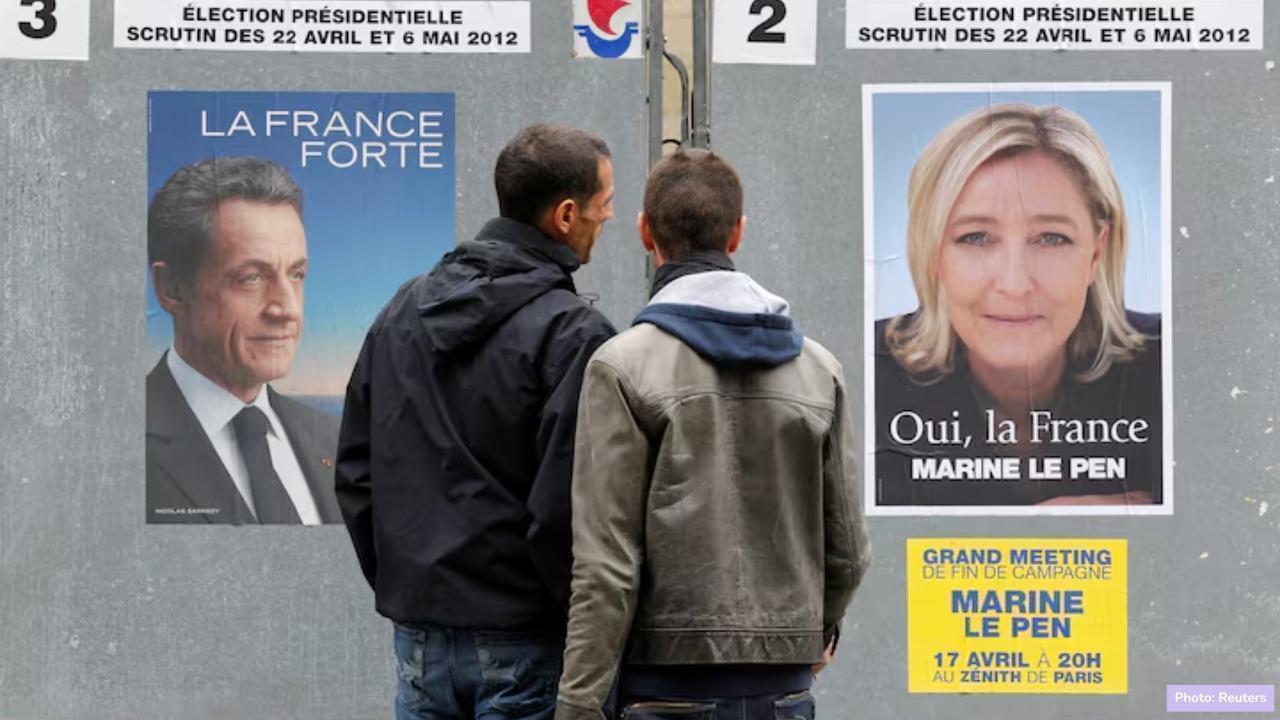
Post by : Monika
On September 25, 2025, France witnessed a historic moment when former President Nicolas Sarkozy was sentenced to five years in prison. This decision came after a court found him guilty of criminal conspiracy linked to his 2007 presidential campaign.
The court concluded that Sarkozy had attempted to raise funds from the Libyan government led by Muammar Gaddafi, a clear violation of French campaign financing laws. This case is significant because it marks the first time in modern French history that a former president has been ordered to serve prison time.
Sarkozy, who served as the President of France from 2007 to 2012, has consistently denied the charges. He has argued that the case is politically motivated and that it is an attack on his reputation.
Speaking publicly after the ruling, Sarkozy expressed his disappointment, emphasizing that the verdict could damage public trust in France’s judicial system. He and his supporters have maintained that while politicians are accountable for their actions, the legal process should not be used to settle political scores.
His wife, Carla Bruni, a former model and singer, also expressed strong support for him. Bruni took to social media, posting messages defending Sarkozy and referring to the ruling as a "scandalous" decision.
She emphasized the importance of love and solidarity, saying, "Love is the answer," and calling for public support for her husband. This public show of support highlights how Sarkozy continues to enjoy loyalty and influence, particularly within right-wing political circles in France.
Reports suggest that even after his term as president, Sarkozy remains an influential figure in political decision-making. Newly appointed Prime Minister Sebastien Lecornu reportedly sought his advice shortly after taking office, showing that Sarkozy’s influence has not diminished despite the court ruling.
The case has sparked a nationwide debate about political justice and the independence of the judiciary in France. Supporters of Sarkozy argue that the court’s decision reflects political bias and that high-profile politicians are being unfairly targeted.
Critics, however, maintain that the ruling proves that no one, not even a former president, is above the law. Legal experts stress that the court’s decision was based on evidence of financial misconduct, rather than political considerations, though they acknowledge that high-profile trials often create public perceptions of political motivation.
The timing of Sarkozy’s conviction is also noteworthy. It coincides with the ongoing legal proceedings of Marine Le Pen, the leader of the far-right National Rally party. Earlier this year, Le Pen was convicted of embezzlement, which currently prevents her from running in the 2027 presidential election. This parallel has intensified debates about judicial fairness in France.
Le Pen’s supporters claim that right-wing politicians are being unfairly targeted by the judiciary, while opponents argue that the legal system is simply enforcing the law equally. One of the main points of contention has been the provisional execution of sentences, meaning that convicted individuals may have to begin serving their sentences even before their appeals are heard. This has sparked intense public discussion about whether such rules are fair or should be revised.
Prime Minister Sebastien Lecornu commented on the situation, stating that changes to sentencing rules should be discussed by parliament if there is a consensus for reform.
He stressed that any reforms would need to balance two important principles: protecting the independence of the judiciary and ensuring that political influence does not compromise legal fairness. This issue highlights the delicate balance between law and politics in a democratic country.
Sarkozy’s legal troubles began with investigations into his 2007 presidential campaign. Prosecutors alleged that Sarkozy had secretly received millions of euros from the Libyan government under Gaddafi to fund his campaign.
Such actions violated French laws, which strictly limit campaign contributions and prohibit foreign funding. The investigation uncovered evidence suggesting that Sarkozy’s campaign received funds in a clandestine manner, raising concerns about corruption and misuse of political influence.
During the trial, prosecutors argued that Sarkozy not only sought foreign funds but also engaged in planning and deception to hide the transactions. Witnesses, including former aides and campaign officials, testified that Sarkozy was aware of the illegal nature of the funds and actively participated in securing them. The court ultimately concluded that the evidence proved criminal conspiracy and deliberate violation of campaign financing laws.
Sarkozy’s defense team argued that there was no direct proof linking him personally to the illegal funds. They claimed that any involvement was unintentional and that the former president had no knowledge of the details.
Despite these arguments, the court found the evidence compelling and sentenced him to five years in prison, with three of those years to be served under house arrest with electronic monitoring. This arrangement allows Sarkozy to avoid immediate incarceration in a traditional prison while still serving his sentence.
The reaction in France to the ruling has been mixed. Many citizens see the sentence as a landmark example of justice being applied equally, regardless of political rank. They argue that politicians should be held accountable for illegal actions, and that failure to enforce the law would undermine democracy.
On the other hand, some commentators warn that the case may deepen political polarization, especially as Sarkozy remains a prominent figure in right-wing politics. Supporters of Sarkozy claim that the judiciary is being used to sideline influential political leaders, raising questions about impartiality.
Internationally, the case has attracted attention as a rare instance of a former head of state being sentenced to prison. Analysts point out that France has a long tradition of judicial independence, but high-profile cases like this one put the system under scrutiny.
Media outlets around the world have reported on the implications of the ruling, noting that it could influence public opinion ahead of future elections and affect the strategies of political parties.
The Sarkozy case also raises broader questions about campaign financing and political accountability. Many observers argue that stricter laws and oversight mechanisms are necessary to prevent corruption and ensure fair elections.
In France, campaign finance regulations are designed to promote transparency, but high-profile violations demonstrate that loopholes and illegal practices can still occur. Experts emphasize the need for continuous reforms and monitoring to maintain public trust in the electoral process.
Looking ahead, Sarkozy is expected to appeal the conviction. The appeals process could take several months or even years, during which time the sentence may be modified or overturned. Until then, Sarkozy will continue to be a central figure in French politics, with his supporters and critics closely watching how the case develops. The outcome of the appeal will likely influence public debates about political justice, judicial independence, and the balance of power in France.
Another important aspect of the case is the potential impact on other political figures. Marine Le Pen’s situation, combined with Sarkozy’s conviction, has intensified discussions about how the legal system treats politicians from different parties.
Citizens and legal experts are closely monitoring whether similar standards are applied uniformly, or whether political bias influences judicial outcomes. This debate is crucial for maintaining trust in democratic institutions and ensuring that justice is seen as fair and impartial.
Beyond legal and political implications, the Sarkozy case has also sparked public discussions about ethics in politics. Citizens are increasingly demanding that leaders demonstrate integrity and transparency.
Cases like Sarkozy’s reinforce the idea that ethical behavior and adherence to the law are essential for maintaining legitimacy and public confidence in government institutions. The trial has become a symbol of accountability, reminding both politicians and the public that actions have consequences, regardless of status or influence.
Carla Bruni’s support and public statements also highlight the personal dimension of high-profile legal cases. Families and close associates of political figures often play a role in shaping public perception, providing emotional support, and rallying political allies. In Sarkozy’s case, Bruni’s presence and messaging have helped reinforce his image among supporters, while also drawing media attention to the broader narrative of justice, loyalty, and political struggle.
In conclusion, Nicolas Sarkozy’s five-year prison sentence for illegal campaign financing represents a historic and highly significant event in French politics. It demonstrates that even the highest-ranking officials can be held accountable under the law,
while also raising important questions about political justice, judicial independence, and the role of the courts in democratic societies. The case has sparked widespread debate within France and internationally, highlighting issues such as campaign finance laws, political ethics, and the fairness of the legal system.
As Sarkozy prepares to serve his sentence and appeal the conviction, discussions will continue about the relationship between law and politics in France. Observers will closely watch how the judiciary handles high-profile political cases in the future, and whether reforms or changes in policy will be introduced to ensure fairness and transparency.
Ultimately, the case serves as a reminder that democracy relies not only on elections and political competition but also on accountability, transparency, and adherence to the rule of law.
Nicolas Sarkozy France jail sentence
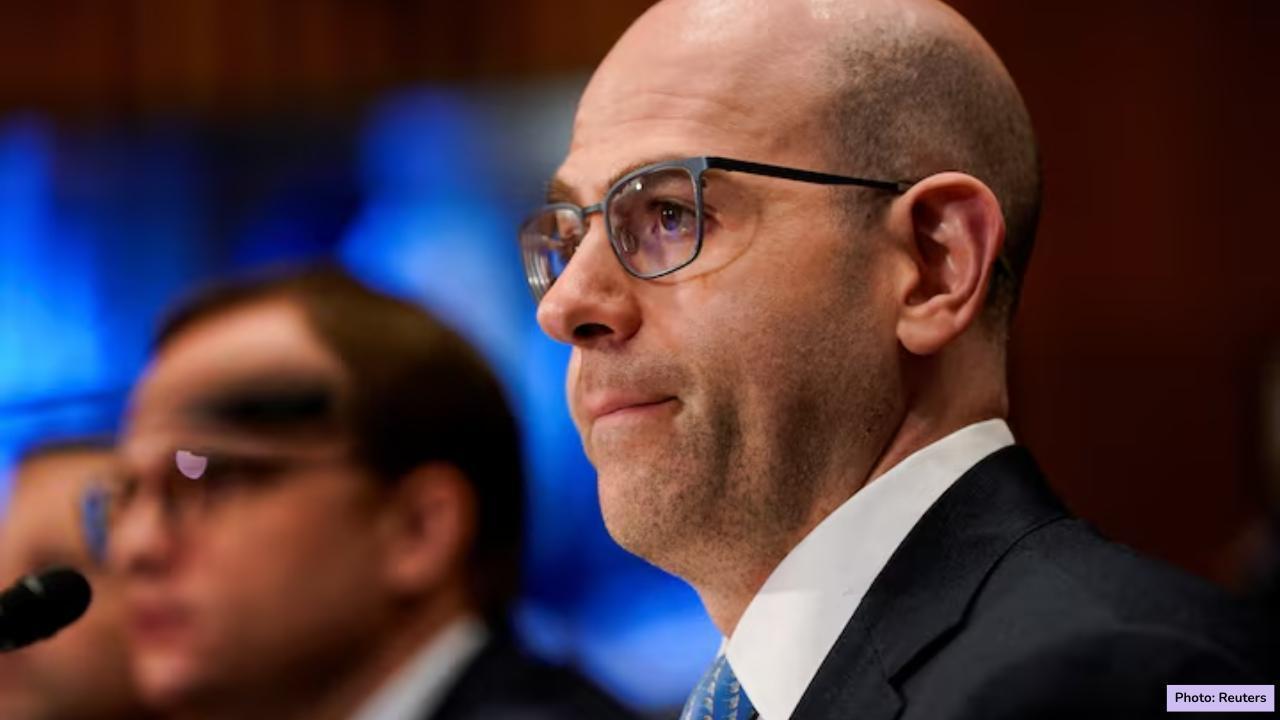

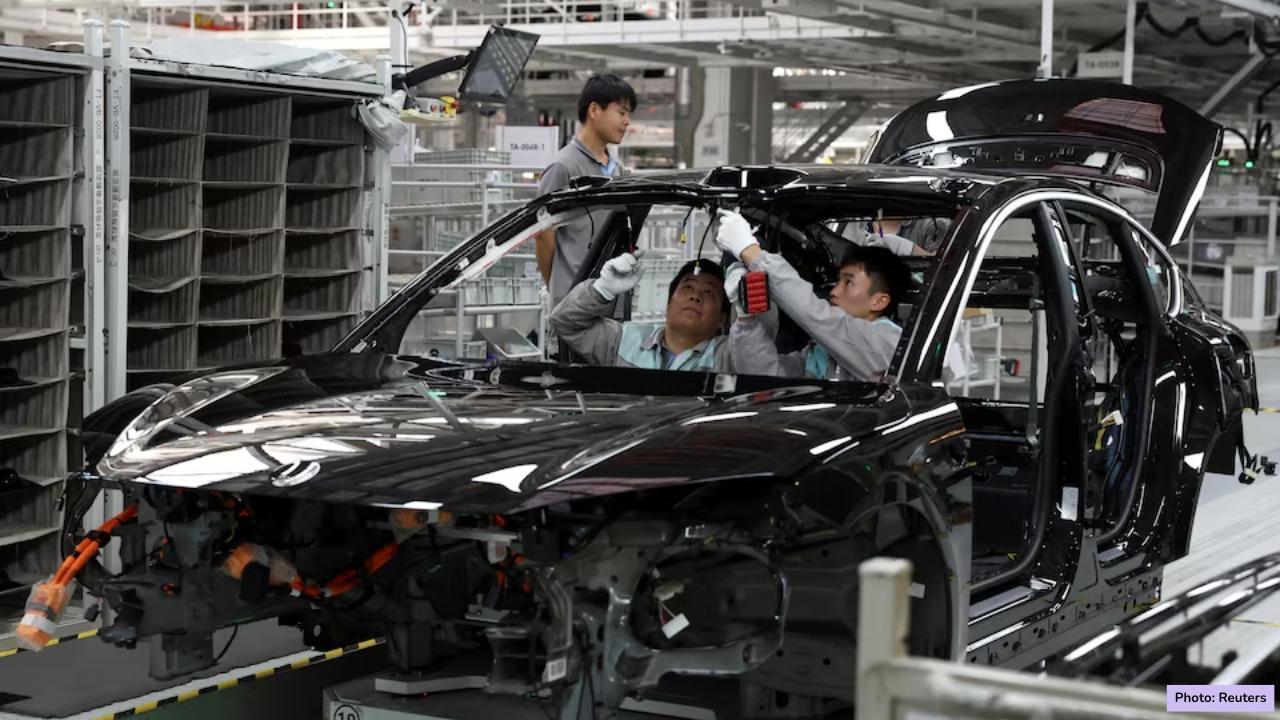
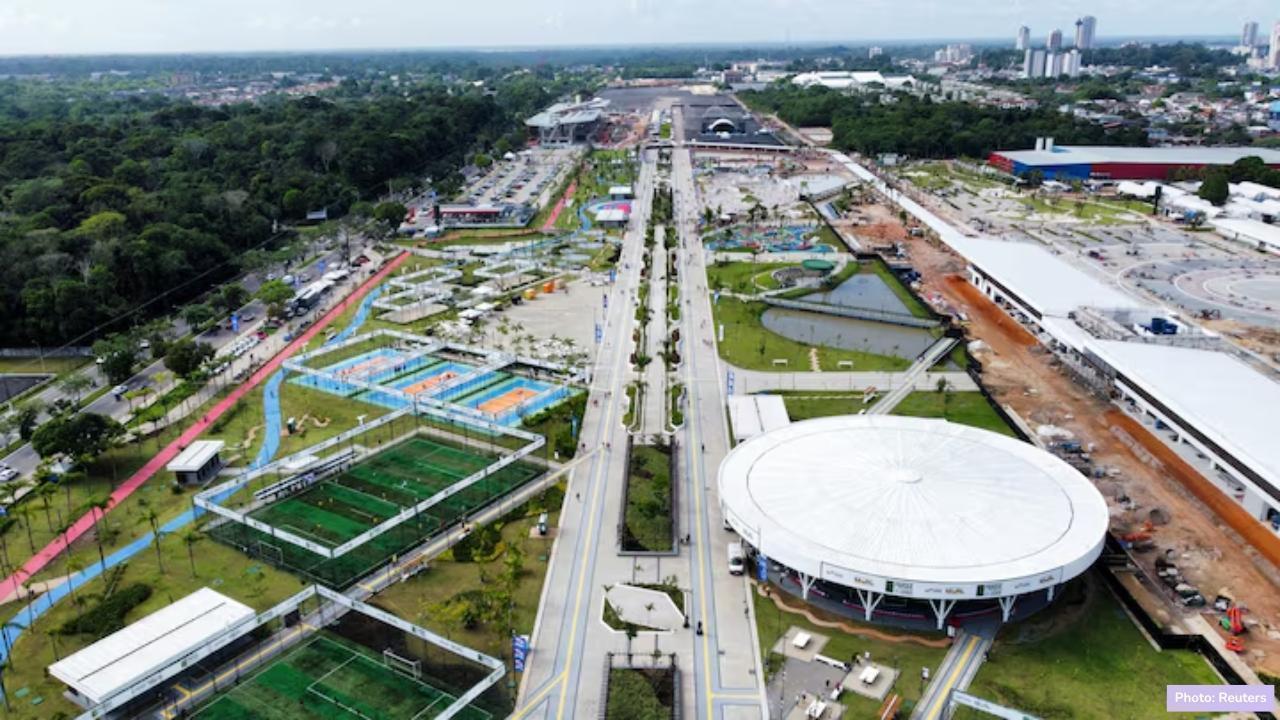
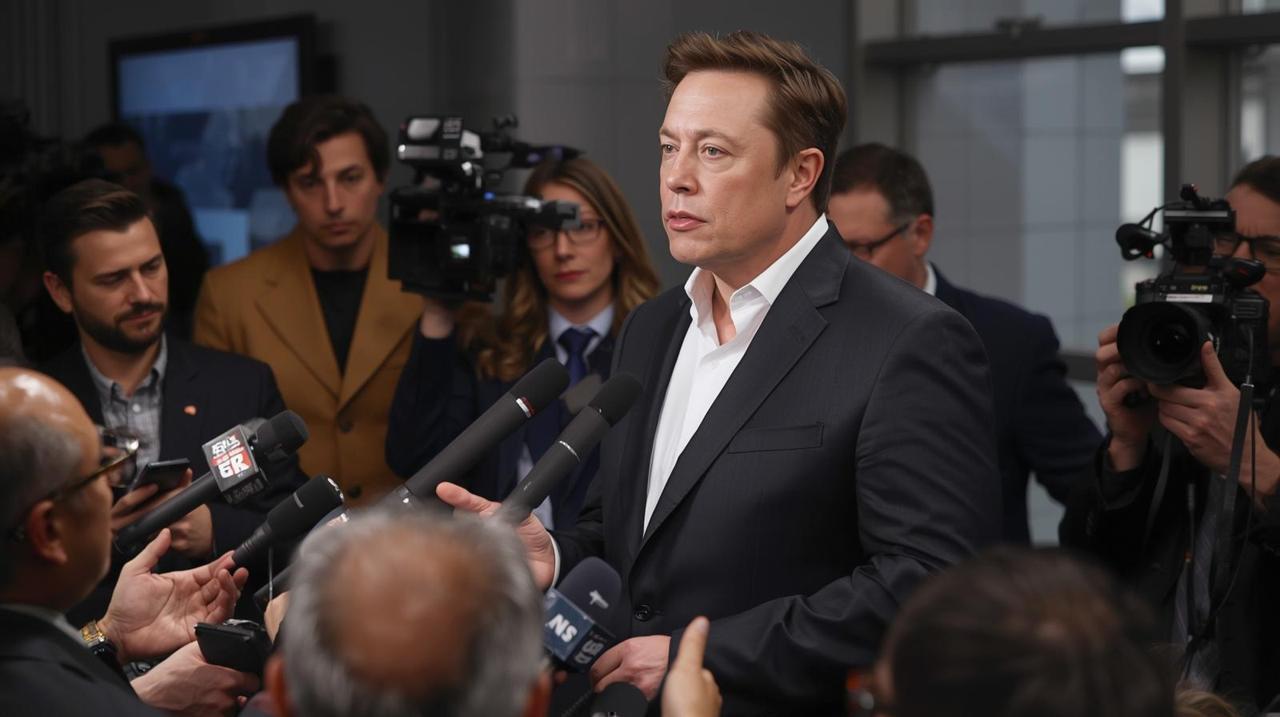

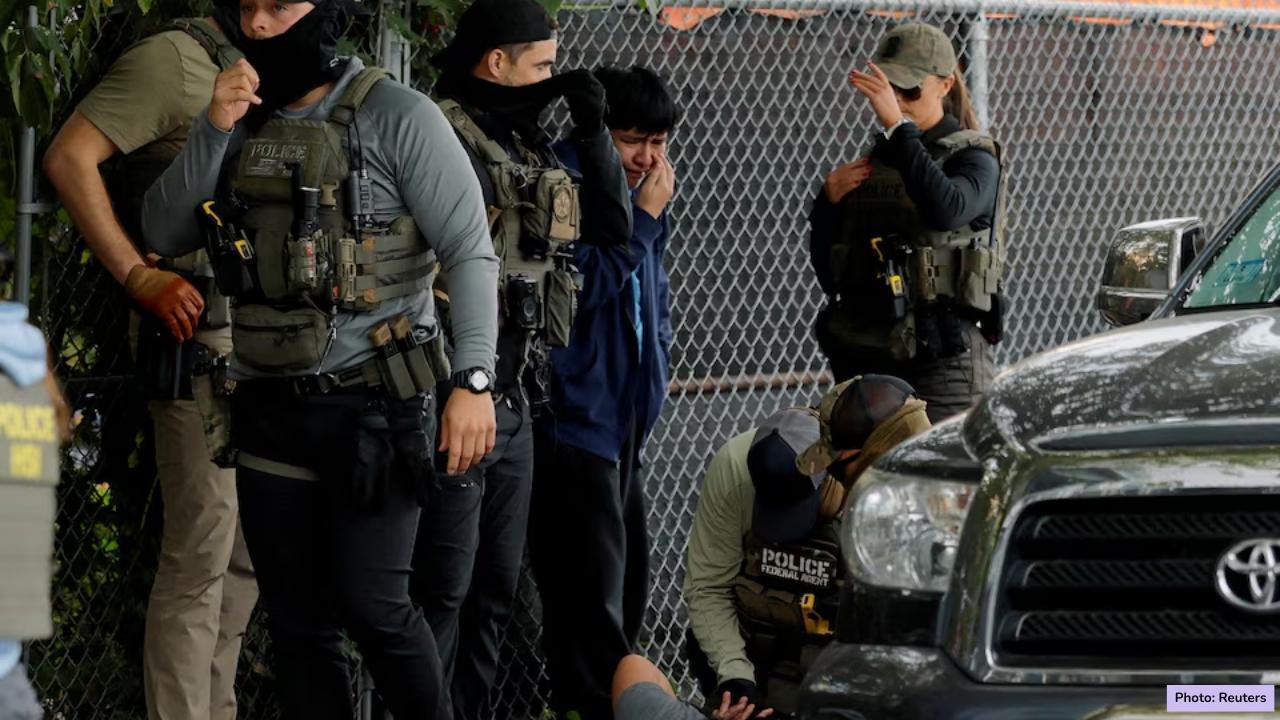

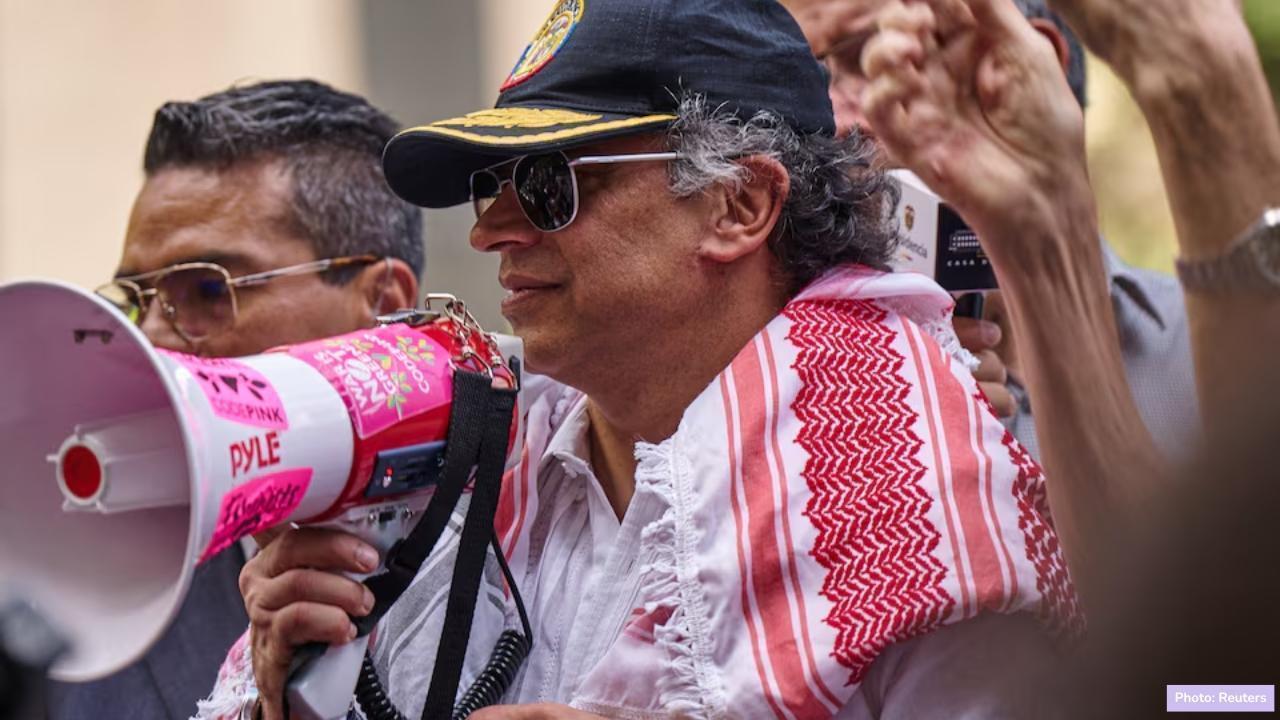

Fed's Miran's Calculation May Overstate Immigration's Impact on Inflation
Experts question Federal Reserve Governor Miran’s claim that reducing immigration will significantly

China's Industrial Profits Grow by 0.9% in Early 2025
China's industrial profits increased by 0.9% from January to August 2025, showing signs of recovery

COP30 Urged to Address Climate Justice and Historical Injustices
Over 240 organizations call on COP30 to link climate justice with reparations for historical wrongs

Tropical Storm Bualoi Hits Philippines: 10 Dead, Thousands Displaced
Tropical Storm Bualoi has caused severe flooding and landslides in the Philippines, leading to at le

ICE Actions Spark Protests and Concerns in U.S. Cities
Recent ICE operations in New York, Chicago, and Boston have led to public outcry, with incidents of

Sarkozy’s Jail Sentence Sparks Debate on Political Justice in France Ahead of Le Pen Appeal
Former President Nicolas Sarkozy jailed 5 years for illegal Libya campaign funds, sparking debate on